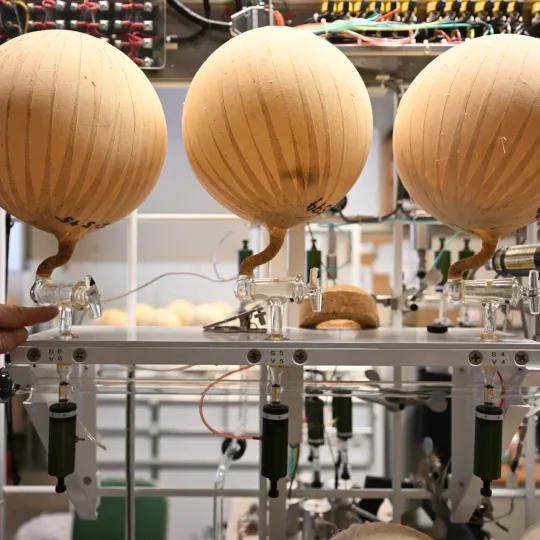
Budget Cuts and New Policies Are Undermining U.S. Scientific Progress
By Ina Kim
Marcia McNutt, president of the National Academy of Sciences, states that the future for U.S. scientific enterprise holds a pessimistic outlook: new policies and regulations are limiting scientists from the freedom to develop new innovations. According to the National Science Foundation, the federal government funded an estimated $164 billion in research and development (R&D), which was a significant portion of the total U.S. R&D spending of $892 billion. The United States has built a kingdom of leading research universities. However, in 2017, the U.S. dropped from 24th to 28th in university funding. New federal regulations in 2025 continue to significantly decrease research funding.
Federal funding for scientific research is necessary and should be supported to continue technological advancements and sustain research as an employable industry.
Research funding is needed for further advancements across all scientific fields. This includes medicine, technology, transportation, engineering, and more. The CWTS Leiden Ranking offers important insights into the scientific performance of over 1500 major universities worldwide — in 2022, Harvard University was ranked second in gross scientific publications (Figure 1). It is significant to note that, other than Harvard University, no other U.S. institution is listed in the top 10 institutions in terms of scientific publications. With continued federal funding cuts, the U.S. is at risk of falling behind (Figure 2).
The U.S. agency’s new policy abruptly ends studies of infectious diseases and cancer, leaving researchers scrambling for funds. Amita Gupta, who has spent more than a decade planning and running a $70 million trial to study a new tuberculosis drug, was informed that the NIH grant cuts would affect her work. Overnight, her clinical trial enrolling nearly 6,000 participants across 13 countries was stopped.
Federal funding cuts for research also cause job scarcity for those working in laboratory and educational fields. Harvard University, known for its medical research, had an over $3 billion federal budget cut due to the “widespread political bias that the administration sees at these institutions,” according to Elissa Nadworny from NPR. To compensate, Harvard is actively moving to self-fund more research to offset potential cuts in federal grants with their endowment. However, the ability to self-fund research is extremely limited at smaller institutions. The consequences of current budget cuts at state universities and community colleges are particularly dire. Research assistants are losing their jobs, along with professors who have served at their university for decades. The career paths of future scientists have, in a sense, ended.
Government funding is important to those being trained for the next generation in studying science and engineering, who need hands-on experience with the right tools. However, if government funding is limited, the next generation might have to seek other jobs. If federal funding for scientific research is reduced, universities and researchers would struggle to secure funding for projects. Scientific discoveries and technological advancements will be decreased because of financial resources instead of individual capability.
As McNutt mentioned, the U.S. scientific enterprise’s future won’t be stable if limits to scientists’ freedom occur. And we’re now seeing the effects of that in the present. “Slashing funding for university research will make it harder for the U.S. to stay ahead as other nations accelerate their progress in areas that are critical for economic and national security,” says UC Associate Vice President for Federal Governmental Relations Chris Harrington. Federal support for research initiatives is necessary to continue moving forward. Without it, science is at risk of stagnation.



